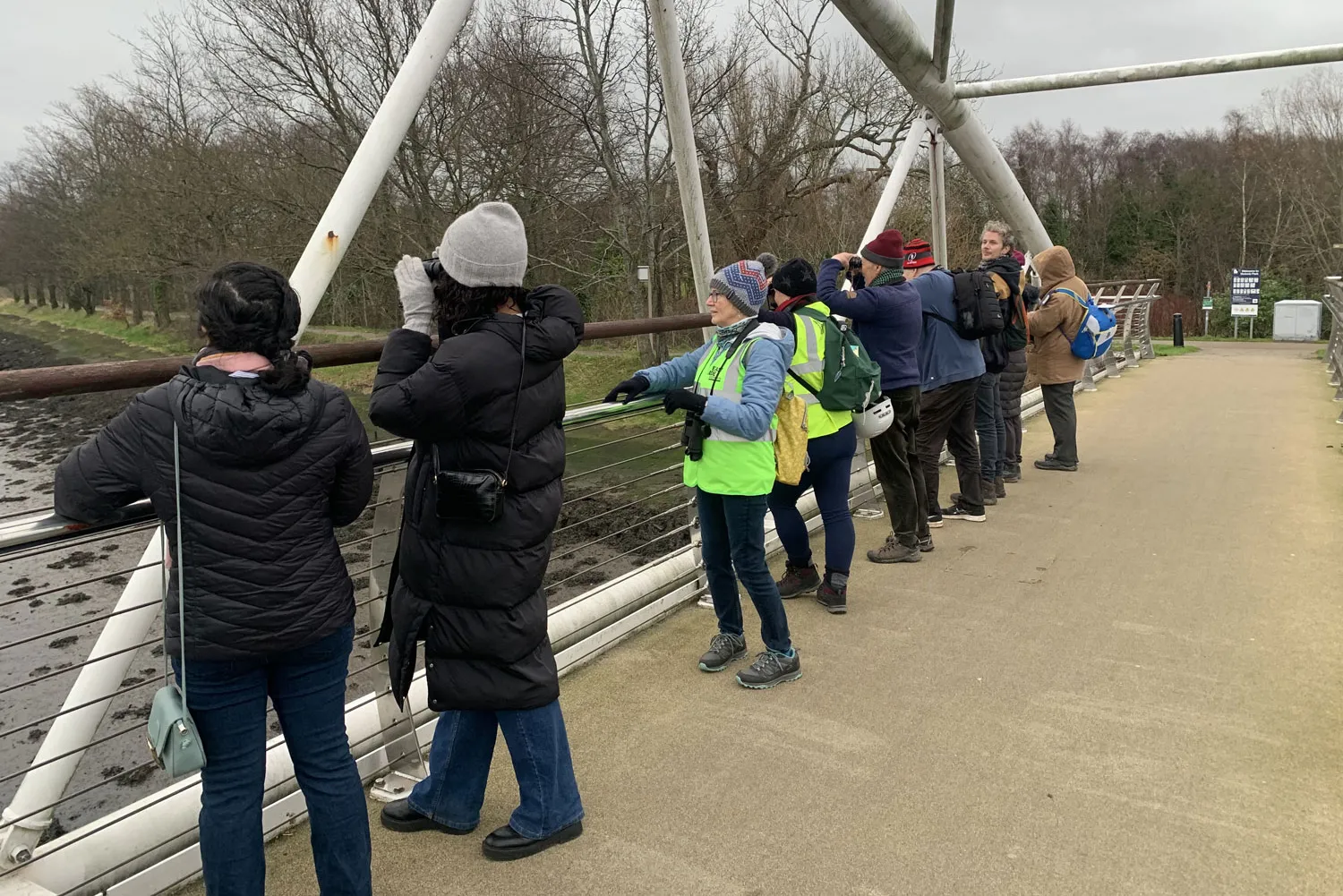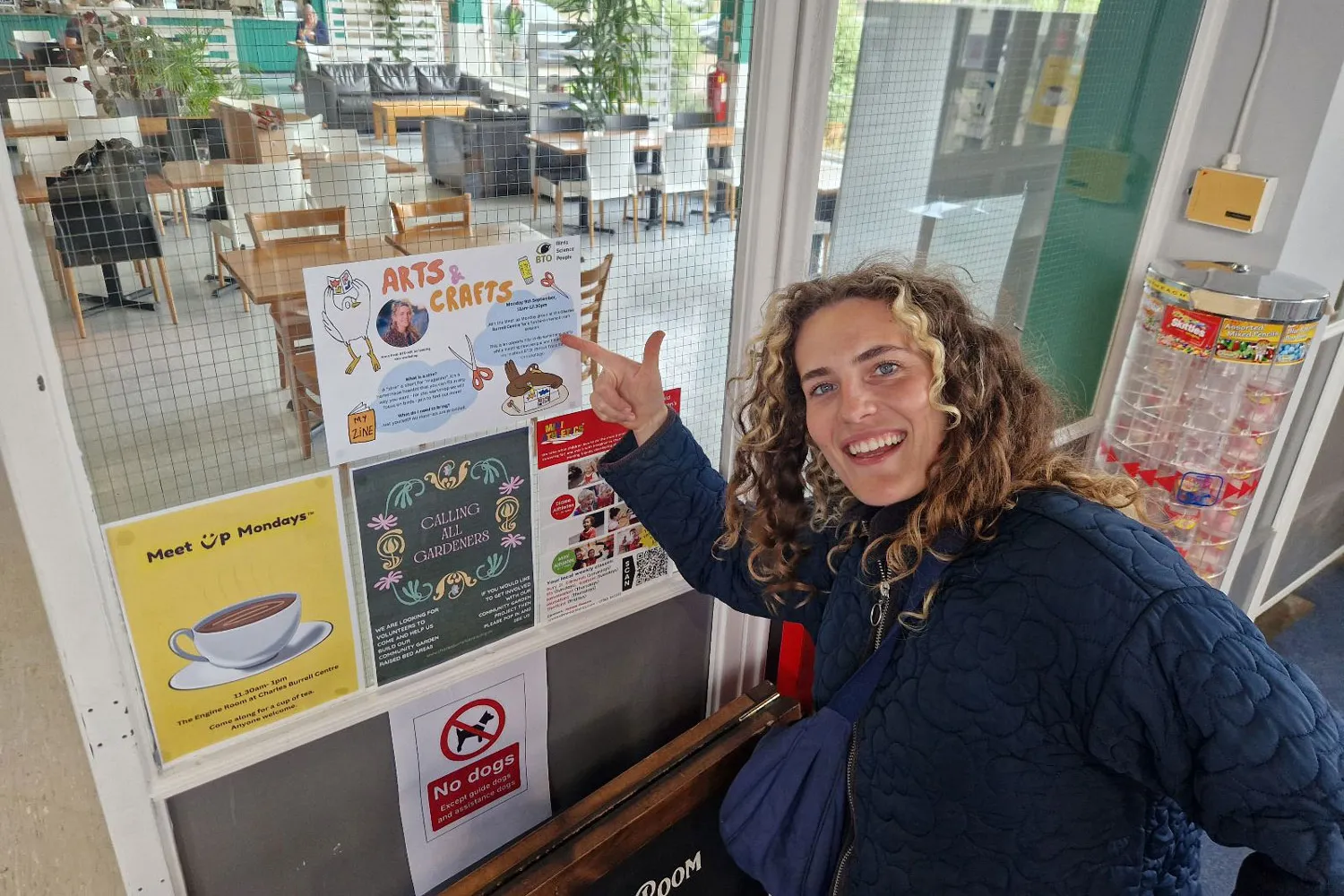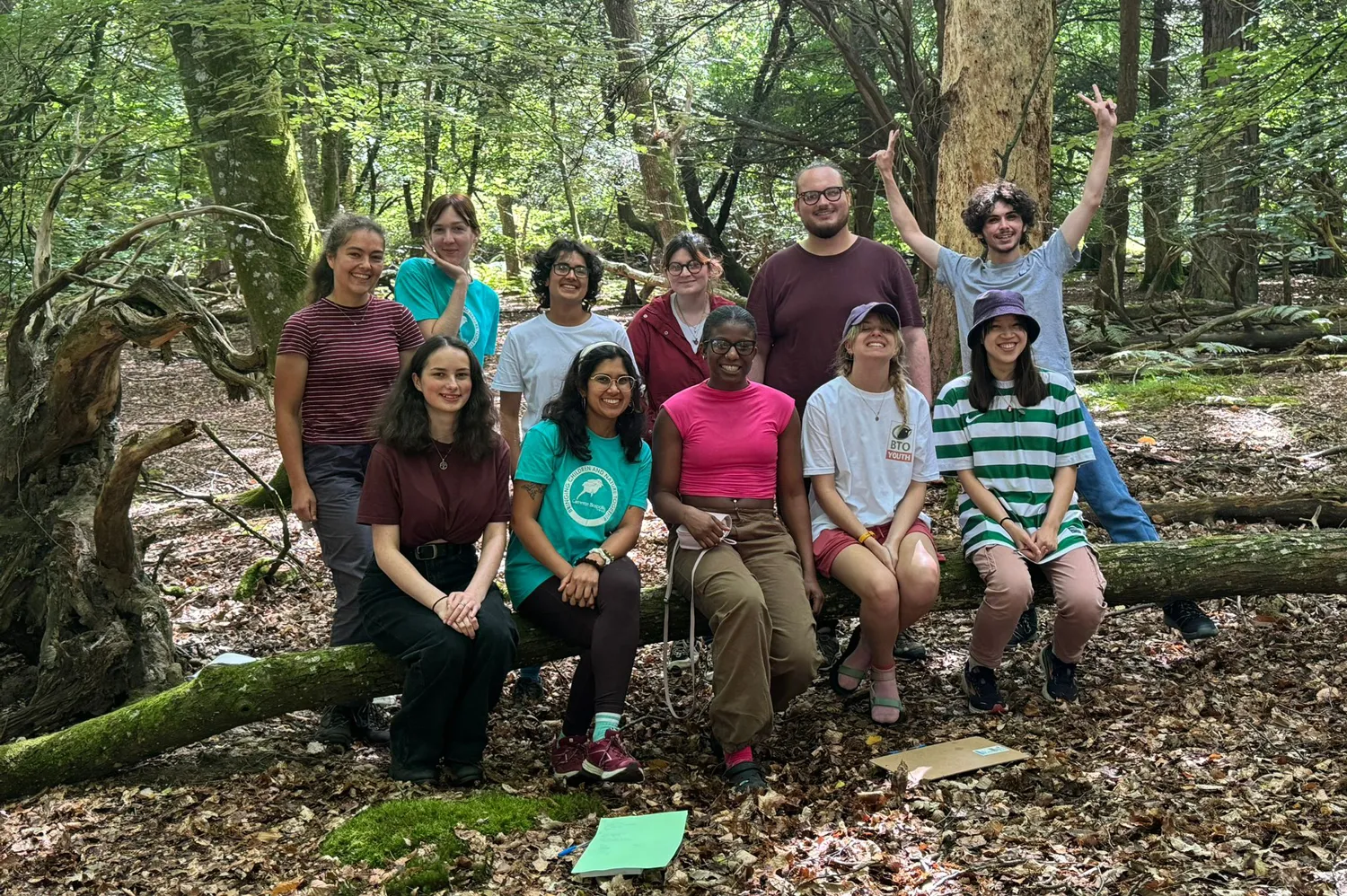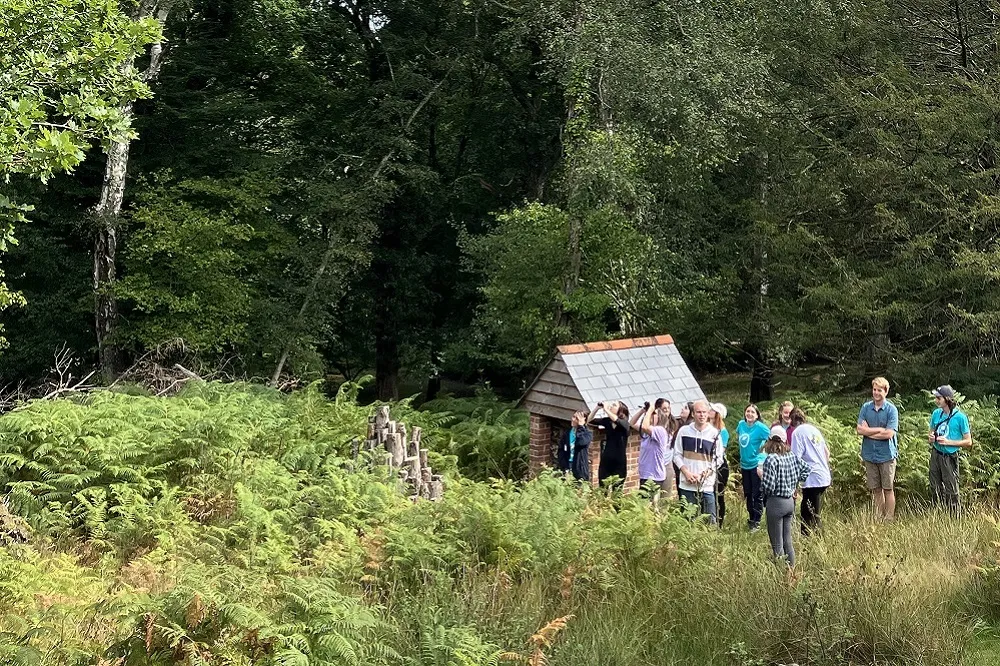We are taking action now, so that by 2030 we will reach our goal of being a more diverse and inclusive community where everyone is welcomed, valued and supported to contribute to our mission: achieving the greatest impact for birds and for people.
A note from Juliet Vickery, BTO’s CEO
“I am frequently asked why diversity matters in ornithology, in science or specifically at BTO.
Diversity means different things to different people, embracing age, gender, ethnicity, sexuality and much, much more. It follows that it will also matter to different people for different reasons so here I simply offer you three reasons why it matters to me personally and professionally. I refer to these under the headings of its importance morally, environmentally and organisationally.
First, we know that access to the natural world has mental and physical benefits for our own health and well-being, and these benefits should be equally accessible to everyone. This is not the case currently, and we need to understand the barriers preventing equitable access and work to overcome them. So it matters morally because of ‘what nature can do for people’.
Next, it matters because addressing the biodiversity crisis we face will require finding novel and almost certainly large-scale solutions to the relentless loss and deterioration of the natural world. The best way to secure novel ideas and broad-scale action is to maximise the number and diversity of hearts and minds around the table – so it matters environmentally because of ‘what people can do for nature’.
Finally, it matters organisationally; if BTO fails to reflect wider society, we risk becoming irrelevant and too narrow in our focus. In the coming years, we will be looking for new ways to cherish our existing members and engage with communities we haven’t connected with before.”
Juliet Vickery, CEO
Becoming (More) Inclusive: The framework
At the start of 2024, a group of staff and volunteers came together with Inclusion consultant Helen Bown to co-produce the Becoming (More) Inclusive framework. This document is a tool to help us achieve our goal of becoming a more inclusive and diverse organisation by 2030, and onwards. In this framework we have identified clear actions we need to take in order to move in the right direction. We also have developed an evaluation process to monitor our progress and ensure that the work we are doing is having the right impact.
We hope that by 2030, the actions we have put in place will help us achieve these 5 outcomes:
- Our community is more reflective of wider society
- We are growing our reach by ensuring the opportunities we create are welcoming to all
- We are celebrating the different skills, experiences, cultures of BTO’s community
- We are supporting our community of staff, volunteers, members and supporters.
- We are building new and exciting partnerships
Read the framework summary (PDF, 1.28 MB)
Ripple Project
The RippleNI Project aims to engage new people with their local wildlife in Northern Ireland.

Together through nature
Together Through Nature is a pilot project to identify how we can best support and collaborate with the people of Thetford.

FAQs
What’s this inclusion work got to do with birds?
As well as the birds, our staff, trustees, volunteers, members and supporters make BTO what it is and by sharing our passion and love for birds and nature with others, for example, by reaching out to communities we are not currently engaging with and building their confidence, knowledge and skills, we can play a part in making nature and birds more accessible… and this in turn means more people bring their perspectives, skills, experiences and creative ideas to BTO and this will help secure a better future for birds. So inclusion benefits people AND birds!
What’s this got to do with me?
If you are part of the BTO community - thank you - we want to continue to celebrate our brilliant community and find more ways that we can connect, share skills and knowledge, empower and learn from one another and those new to BTO, birds and nature. This is what inclusion means to BTO.
We recognise some of the terminology in this space can cause some people to feel defensive or uncertain - we hope people will take time to watch the animation and the case studies to see what BTO is actually doing in this area. We are so proud of our staff and wider community for the work they are doing to widen BTO’s reach.
What are some actual barriers to nature?
Many studies have shown that there are many barriers that prevent people from accessing nature or from entering the environment and conservation sector as a professional. A non-exhaustive list of these include financial barriers, time constraints, fear and issues around safety, lack of accessibility, barriers relating to transport, lack of role models, educational and cultural barriers and experiences with discrimination. While many of these barriers result from social issues that are wider than BTO, they are also barriers to BTO widening its reach to more people. That’s why we are taking proactive steps to address these barriers in order to ensure the opportunities we provide are inclusive.
Reports on diversity and barriers in the environment and conservation sector:
- Included outside: Engaging people from ethnic minority backgrounds in nature by Natural England
- Access to nature in the English Countryside by CPRE
- Anti-racist Wales evidence report: ethnicity and access to greenspace
- Benchmarking our ethnic diversity journey
- BTO’s transparency card for the Race Report
- Addressing the lack of diversity in the environment sector by Esmée Fairbairn
- Understanding Barriers to Nature Connection by Health and Nature Dorset
What happens if we don’t do this work?
If we don’t take proactive steps:
- BTO risks missing out on a new pool of staff and volunteers to work alongside our existing community to address the issues nature and birds are facing.
- BTO risks missing out on opportunities for collaboration in the sector, as there is a movement across the whole environment and conservation sector that is committed to working together to address these issues.
- BTO risks its financial stability as funders are increasingly looking to support projects with inclusion embedded.
- BTO risks becoming irrelevant if it doesn’t adapt and evolve to meet the needs of people looking to work or volunteer with BTO.
- BTO will not be able to secure the future enrolment of members and supporters who contribute to BTO’s financial sustainability.
Change takes time, therefore our inclusion work is a long-term commitment. We want everyone to be a part of this journey, and we will support our community with this.
What are you actually doing to become more inclusive?
Work is underway across BTO already:
Internally we are actively reviewing policies relating to being a welcoming and inclusive employer; we are running workshops that support and promote working collaboratively and sharing decision making; we continue to collect, learn from and act upon data about the demographics of our staff and we have regular meetings of our neurodiversity staff group.
Externally we are collecting stories from our community to celebrate our volunteers’ long-term efforts; we are creating new partnership projects to connect our BTO Youth volunteers with our existing community of volunteers to share knowledge; we are continually improving our safeguarding processes so that people know who to get in touch with if they encounter any issues while volunteering; we are developing projects aimed at communities we haven’t engaged with before to share our passion for birds and nature.
To find out more about our engagement projects, please read about RippleNI and Together Through Nature.
All of our work is rooted in our Becoming (more) Inclusive framework - which consists of areas of work and learning, actions and enablers, and evidence and signs of change. We have also identified a timeline, and priorities to reach in the next three years. This framework applies across BTO as change needs to happen at an organisation-wide level in order for it to achieve real, tangible, non-tokenistic change. You can read more about these in our Becoming (More) Inclusive framework.
Additional Resources
- Included outside: Engaging people from ethnic minority backgrounds in nature by Natural England
- Access to nature in the English Countryside by CPRE
- Anti-racist Wales evidence report: ethnicity and access to greenspace
- BTO’s transparency card for the Race Report
- Addressing the lack of diversity in the environment sector by Esmée Fairbairn
- Understanding Barriers to Nature Connection by Health and Nature Dorset
- Out of Bounds: Equity in access to Urban Nature
Get in touch with us
We would love to hear your positive stories around feeling included in BTO and nature. Get in touch at people@bto.org.
Embracing Everyone
Our Embracing Everyone strategy action area is helping us to realise our ambition to become a more inclusive organisations by 2030.

Our EDI Statement
Our Equity, Diversity and Inclusion Statement sets out our commitments and approach in this foundational business area.
